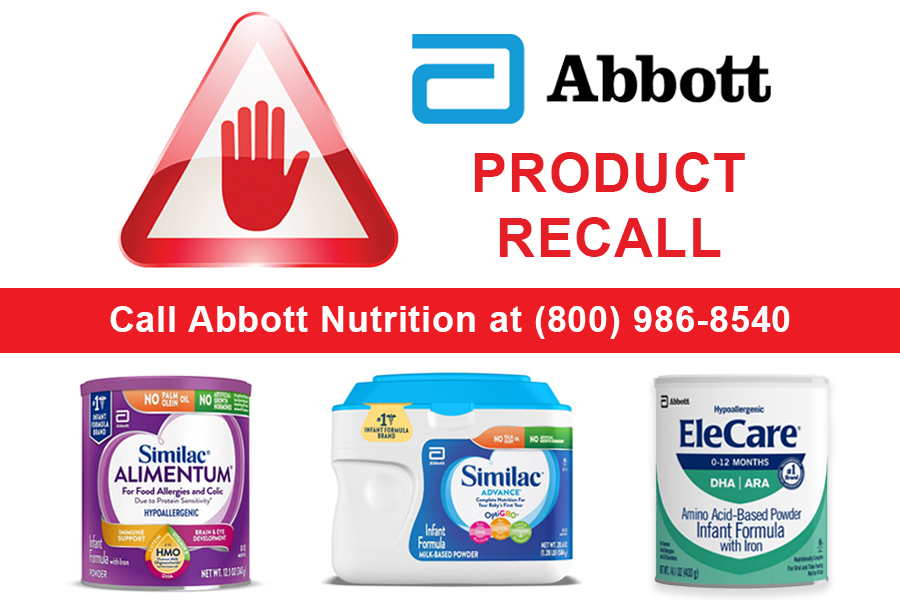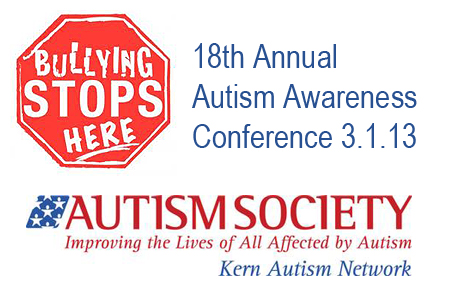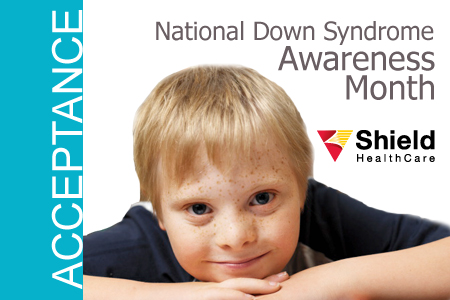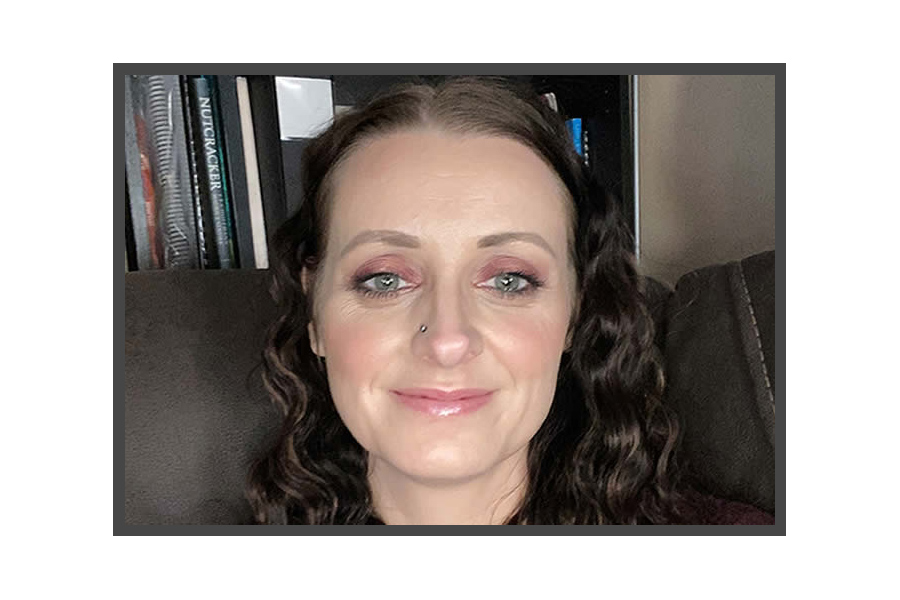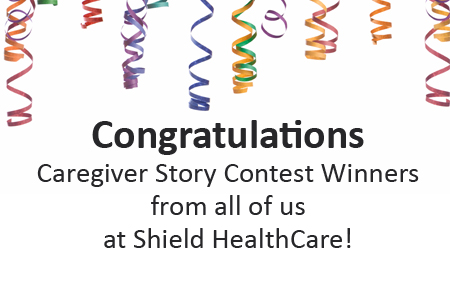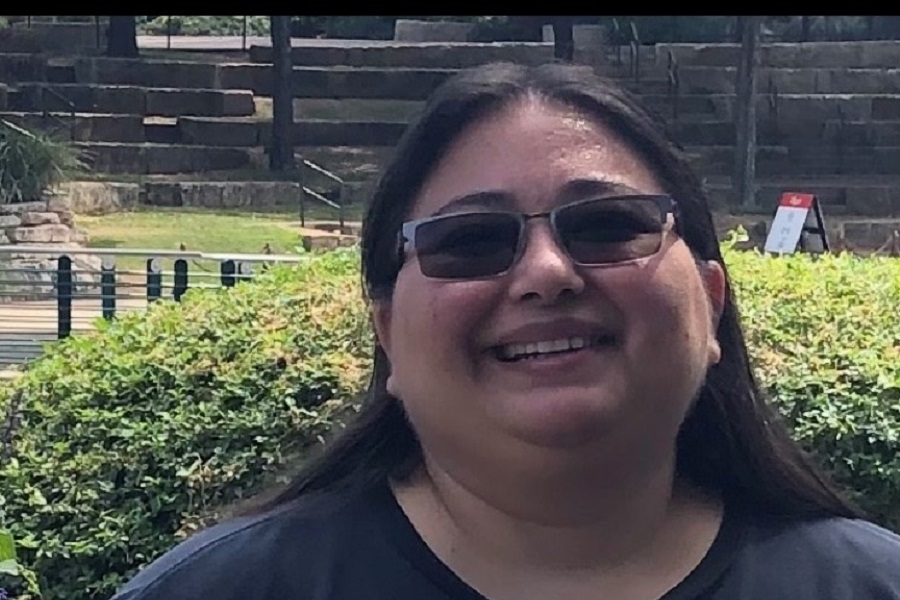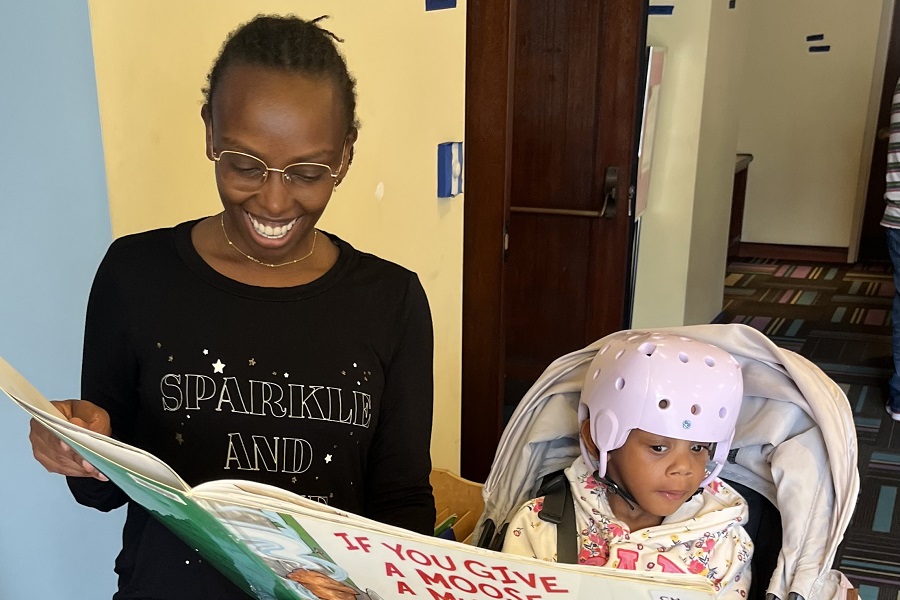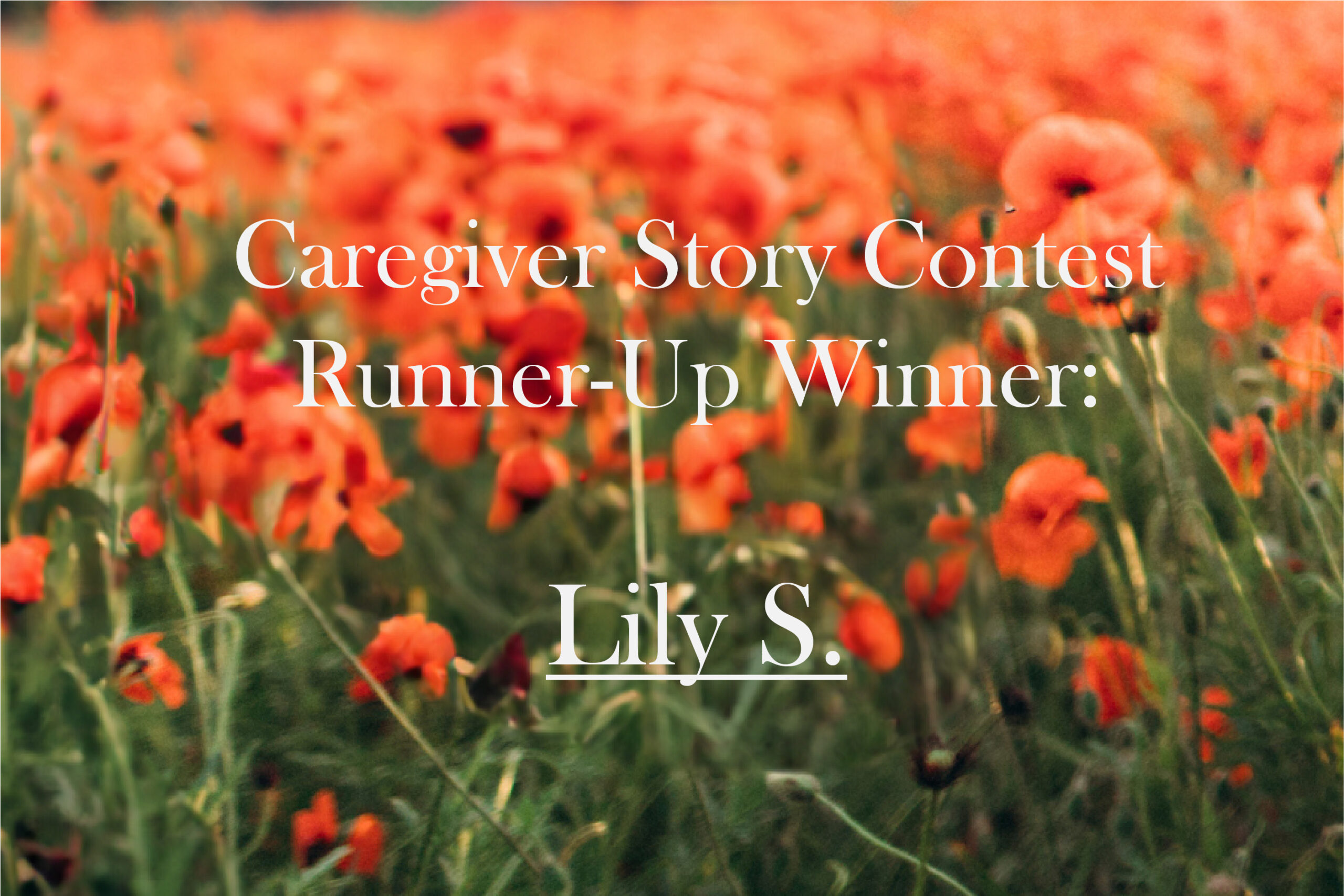Julieann S. is from Utah, and was one of forty finalists chosen out of the over 1,000 entries to our “What Advice Would You Give to a Fellow Caregiver?” Contest. You can find our grand prize and runner up winners here.
What advice would you give a fellow caregiver?
Turkey, lettuce, and tomato on white bread. No cheese or mayo, at the doctor’s recommendation. My husband was on a strict diet to avoid recovery complications. I transferred Ken’s oxygen tubes from the machine to the portable tank and precisely positioned his walker so he could move from the couch to the table. The ordeal seemed crazy for a simple lunch, but I couldn’t move his 6-foot-4-inch, 220-pound body any other way.
I never envisioned this for my 28-year-old husband, but cancer changed everything. “Most people don’t survive, but if we give it everything we’ve got, there’s a chance,” doctors said. We learned “everything we’ve got” included the brink of death. After months of chemotherapy and a 24-hour surgery, we were grateful for his life, but also exhausted.
Our three-year-old, Tanner, woke from his nap as I finally sat down. Before taking a bite, I realized my sandwich would become his. I rewrapped Ken’s foot with bandages and put Tanner’s shoes on.
“We’re going to the pharmacy,” I told Tanner.
“Again?” He sighed.
I scheduled more appointments via Bluetooth from the car. At the pharmacy, I let Tanner choose his favorite cane for Ken while I picked a shower chair. We found Ken’s six medications and checked out.
“Don’t forget to take care of yourself.”
The cashier saw my obvious lack of sleep and hygiene. She meant well, but the comment left me feeling inadequate. I was giving all I had to caregiving and our family. I checked off 20 things today – never mind that I had 50 to go. How could she add another thing like taking care of myself? Couldn’t she see I was doing my best?
It reminded me of similar well-intentioned but unsolicited advice.
“Get a massage sometime,” my neighbor demanded without offering to pay or babysit our son.
“Catch a movie,” Ken’s surgeon said without thinking about my nerves.
“Take a break from the hospital,” his nurse commanded when I only wanted to hold Ken’s hand.
“Be strong,” a friend declared when I only wanted to cry.
While “taking care of myself” sounded great in theory, I interpreted it as another item on my to-do list. Another thing I was failing at. Another thing that proved I wasn’t enough.
But walking out of the pharmacy, I decided to hear those comments differently. I knew people wanted to help. They never aimed to make me feel like a failure. They just didn’t want me to lose sight of my own needs amidst the chaos.
So I inserted the words “give yourself permission” in front of each command. I altered the orders to suggestions, modifying as I saw fit. This completely changed my perspective. Instead of adding to my to-do list, it gave me permission to relax. Instead of making my body shake, my head throb, and my heart race, I could take a deep breath and remind myself that I was doing a good job. I finally gave permission to be kind to myself.
As caregivers, we tend to do it all. We often don’t see another choice. We do what needs to be done, and we keep pushing through. But we should give ourselves more permission. We don’t need friends telling us we aren’t caregiving well, but we can interpret their well-intentioned comments as permission to go a little easier on ourselves. We can take breaks when we need it and on our own terms. Self-care looks different for everyone depending on personalities and situation. So we should take the reins on how to care for ourselves and give ourselves lots of permission along the way.
Give yourself permission to get a massage or pursue hobbies if that will help.
Give yourself permission to take a walk or stay in the hospital room, whatever you choose.
Give yourself permission to cry when you need to cry or yell when you need to yell.
Give yourself permission to care for yourself YOUR way. If that means two days on a girls’ trip, two hours for lunch, two minutes to read, or two seconds to breathe, that’s okay.
You have enough on your plate as a caregiver. You don’t need to add more expectations. You can give yourself permission.
Click here to head to the contest home page and read more advice.
Finalists were selected by the Marketing Team at Shield HealthCare. Those finalists were submitted to a panel of independent judges who picked three grand prize winners and five runners up. The judges included: Sandra Mitchell, Award-winning KCAL 9 news anchor and breast cancer survivor, and the Landers family: actor and comedian David Landers (“Laverne & Shirley”) who is living with MS, his wife Kathy and his daughter Natalie (“The Middle”). Click here to learn more.









